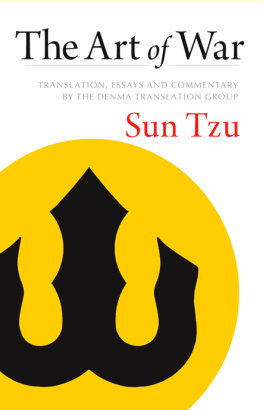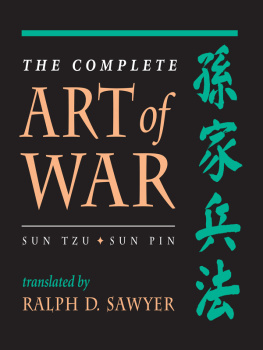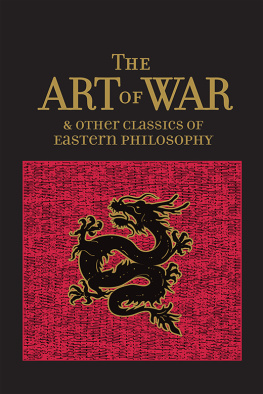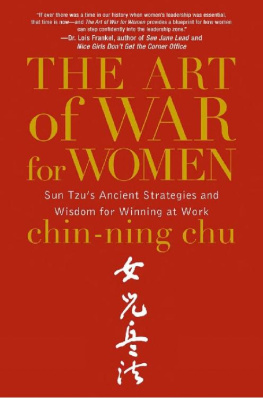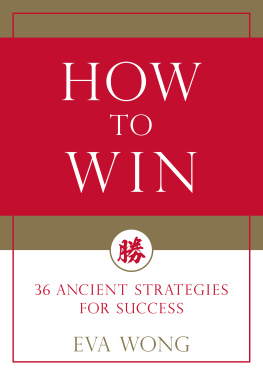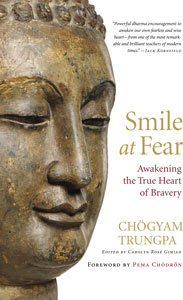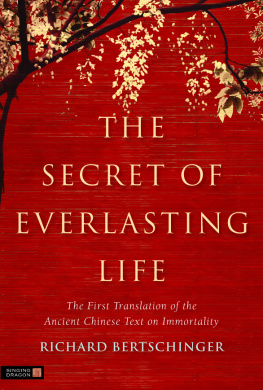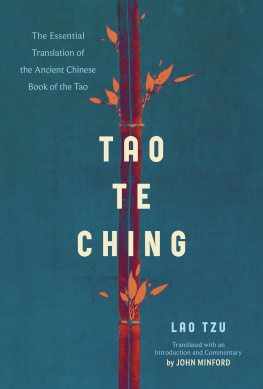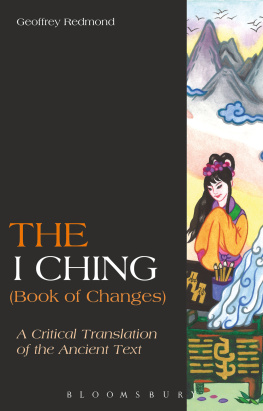The Denma Group show us how to apply Sun Tzus wisdom in everyday situations.
James A. Autry, co-author of Real Wisdom: Business Lessons from the Tao Te Ching
The commentary and essays included will help the reader appreciate that this work has endured, not simply as a manual for the conduct of warfare but because of the depth of the principles on which it is based and their applicability to everyday life.
Library Journal
An exhilarating experience. The principles of translation are among the best I have ever encountered. They have a collective genius.
Victor H. Mair, professor, Department of Asian and Middle Eastern Studies, University of Pennsylvania
ABOUT THE BOOK
Conflict is an inevitable part of life, according to this ancient Chinese classic of strategy, but everything necessary to respond to conflict wisely, thoroughly, and victoriously is right before us at all times. The key to skillful action in any situation is in knowing those things that make up the environment and then seeing the patterns they form so that their power becomes available to us. It is not necessary to change the nature of things to find victory. Since, as Sun Tzu teaches, aggression and response in kind can lead only to destruction, we must learn to work with conflict in a more profound and effective way. The Art of War shows us how.
The Art of War gives us proven strategic skills to apply when we need to take action and overcome obstacles in rapidly changing, chaotic situations. Though ancient in origin, these strategies are accessible because they are based on the ways we already do things. As Sun Tzu shows, rather than getting mired in conflict, we can create momentum and bring about the tipping point to achieve success.
The DENMA TRANSLATION GROUP is led by Kidder Smith and James Gimian. Smith directs the Asian Studies Department at Bowdoin College in Brunswick, Maine. Gimian is publisher of the Shambhala Sun magazine and a publishing consultant. The other members of the group have worked professionally in the writing, editing, and publishing fields.
Sign up to learn more about our books and receive special offers from Shambhala Publications.

Or visit us online to sign up at shambhala.com/eshambhala.
THE ART OF WAR
Translation, Essays and Commentary by the Denma Translation Group
SUN TZU

SHAMBHALA
Boston & London
2011
SHAMBHALA PUBLICATIONS, INC.
Horticultural Hall
300 Massachusetts Avenue
Boston, Massachusetts 02115
www.shambhala.com
2001 by The Denma Translation Group
All rights reserved. No part of this book may be reproduced in any form or by any means, electronic or mechanical, including photocopying, recording, or by any information storage and retrieval system, without permission in writing from the publisher.
Library of Congress Cataloging-in-Publication Data
Sunzi, 6th cent. B.C.
[Sunzi bing fa. English]
The art of war: translation, essays and commentary by the Denma translation group / Sun Tzu.
p. cm.
Includes bibliographical references.
eISBN 978-0-8348-2169-9
ISBN 978-1-59030-728-1
1. WarEarly works to 1800.
2. Military art and scienceEarly works to 1800.
I. Denma Translation Group. II. Title.
U101.S95132009
355.02dc22
2009003937
CONTENTS
INTRODUCTION
Applying The Art of War
A BOUT 2,300 YEARS AGO in what is now north China, a lineage of military leaders put their collective wisdom into written form for the first time. Their text was to shape the strategic thinking of all East Asia. It offered a radically new perspective on conflict, whereby one might attain victory without going to battle. Though in the West their text is called The Art of War, in China it is still known as the Sun Tzu, named for the patriarch of their lineage.
Over the last half-century, this text has become a handbook for people all around the world seeking to transform their approach to conflict, whether in warfare, in business or simply in everyday life. When a squadron leader targets his objective or a boardroom falls under siege, when our neighbors join a zoning battle to protect local parkland, we may find modern-day warriors turning to the Sun Tzu. Clearly they have a conviction that its ancient wisdom has considerable value today. But how might we apply this Chinese text to our lives in a genuine manner? How can it teach us to work more effectively with conflict? These are the central questions of this book.
The answers lie within the Sun Tzu itself. The text shows how to conquer without aggression, whether our conflict is large or small, personal or national. One of its most famous couplets states:
One hundred victories in one hundred battles is not the most skillful.
Subduing the others military without battle is the most skillful.
The wisdom of this book is a profound human knowledge, something to which every one of us has access. It does not belong to any proprietary group, Chinese or Western. It shows a way of working with conflict that is sane, kindly and effective. Though the Sun Tzu offers models of behavior, it does not suggest we copy them. Instead, it invites us to enter its teachings fully. When we do so, we find we come naturally to the same insights that are contained within its text.
The Sun Tzu begins with the understanding that conflict is an integral part of human life. It is within us and all around us. Sometimes we can skillfully sidestep it, but at other times we must join with it directly. Many of us have seen the destructive power of aggression, whether on a personal level or in the disasters of armed conflict. We know as well the limitations of most political and personal responses to that aggression. How can we work with it in a more profound and effective way?
The Sun Tzu recommends that our response to conflict start from knowledge, of ourselves and of the other. In chapter 3 it says:
And so in the military
Knowing the other and knowing oneself,
In one hundred battles no danger.
Not knowing the other and knowing oneself,
One victory for one loss.
Not knowing the other and not knowing oneself,
In every battle certain defeat.
Self-knowledge in the Sun Tzu includes awareness of the full condition of our forces, but it begins with something far more intimate: knowledge of our own minds. People come to this knowledge in many ways. The contemplative practices offer one means of insight. More basic than any particular practice, though, is the openness of mind to which it leads. This openness can be present in all our activities. We find ourselves there when we experience a sudden moment of beauty. It is the unformed, creative source of the performing and plastic arts. Athletes know it as the zone, and lovers do not even name it. It is where they are most at home and their actions most effective.
Why, though, would anyone wary of aggressions destructive force study a text about conflict? As the Sun Tzu says, it is essential to know ourselves, to know our own minds. But we also live in a world where aggression cannot be avoided. We must know the other in order to skillfully engage him or her. It is necessary, therefore, to learn to work directly with the conflict in our environment, not ignore it, submerge it, give up on it or try to deny its existence. However profound our individual wisdom, it will not survive in the world unless it is joined with some kind of power. Recognizing this seems especially important at the present time, when the consequences of human action can be so thoroughly devastating. This text, then, shows how we can work with conflict both within and outside ourselves.
Next page
